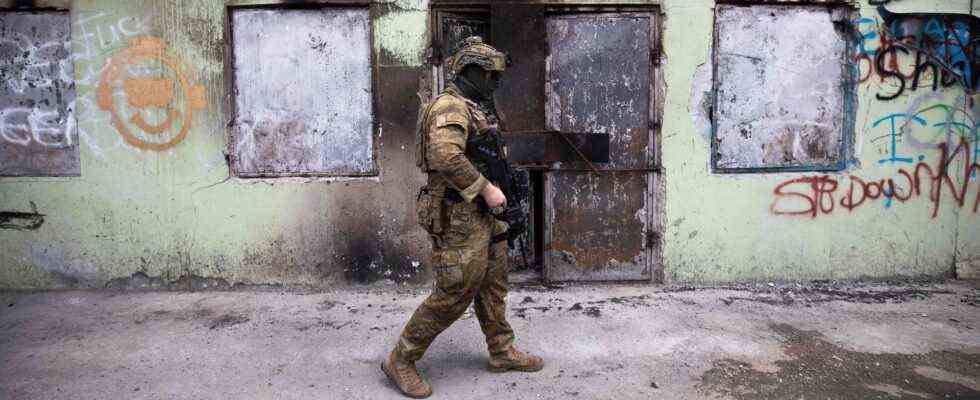Status: 04.12.2021 12:49 p.m.
The outbreaks of violence in the remote Solomon Islands have alarmed the Pacific states. Because the anger directed against Chinese shops and buildings there also has a foreign policy dimension.
In front of the charred ruins of burned-out shops, rubbish and rubble, broken glass and broken boxes are piled up. Heavily armed military patrol the clay streets of Hoiniara. Australia, Fiji and New Guinea have sent soldiers to the capital of the Solomon Islands. New Zealand dispatched 15 police officers.
Because it’s about more than unrest in a remote South Pacific island nation 2000 kilometers northeast of Australia: The Solomon Islands are plaything in the competition between the great powers for influence on some of the smallest nations in the world. And the countries bordering the Pacific are alarmed that the conflict between China, Taiwan and the USA is exacerbating their regional and economic conflicts.
Protests against government change of course
Several hundred demonstrators marched to parliament last Wednesday to protest the government’s change of course. Two years ago, Prime Minister Manasseh Sogavare severed diplomatic relations with Taiwan and moved closer to Beijing. Reason: “We want to be on the right side of history!” Of course, there was also a lot of money involved, because the new friend from Beijing promised to invest millions in the underdeveloped infrastructure.
Bribery may also have been involved, speculates Tess Newton Cain of the Griffith Asia Institute in Australia: “Concerns about corruption in the Solomon Islands are nothing new. Sogavare has been a powerful player in politics for a very long time. He has many supporters, but also many Opponents who have long held grudges against him and would like to see him fall. “
Quarrel has been smoldering for two years
The most important opponent of Sogavares and its rapprochement with China is the premier of the largest island Malaita, Daniel Suidani. He banned Chinese companies from his province and instead accepted development aid from the USA.
Last week, the dispute, which had been smoldering for two years, escalated. Protesters from Malaita province marched to the parliament building in the capital. When the government refused to speak to them, the angry mob roamed the Chinese neighborhood of Hoinara, pillaging and looting. Four people were killed and 63 buildings were completely destroyed.
“We are not here to interfere in a democracy,” assured Australian Prime Minister Scott Morrison after the dispatch of a good 100 soldiers, “but as a member of a family to create a safe and stable environment in which the Solomon Islands’ conflicts can be resolved can be! “
Washington alarms about Beijing’s policy
China’s efforts to draw Taiwan’s friends over have alarmed Washington. The strategy of securing political influence by investing in the infrastructure of emerging countries has also worked in other Pacific countries.
The island republic of Kiribati, for example, also turned from Taipei to Beijing. Its former president Anote Tong fears unrest similar to that in the Solomon Islands for the island group of 120,000 people in Kiribati: “The rapprochement with China was not really popular with the population because they often act more like occupiers than investors.”
Micronesia President David Panuela said his government is striving to strike a careful balance between China and the US so as not to become “a sandwich” between their rivalries. A fear that many of the Pacific states share.
“We should keep a very close eye on what is going on in the Solomon Islands,” said the former Secretary General of the Pacific Islands Forum, Meg Taylor. “Because what happened here can happen again at any time.”

